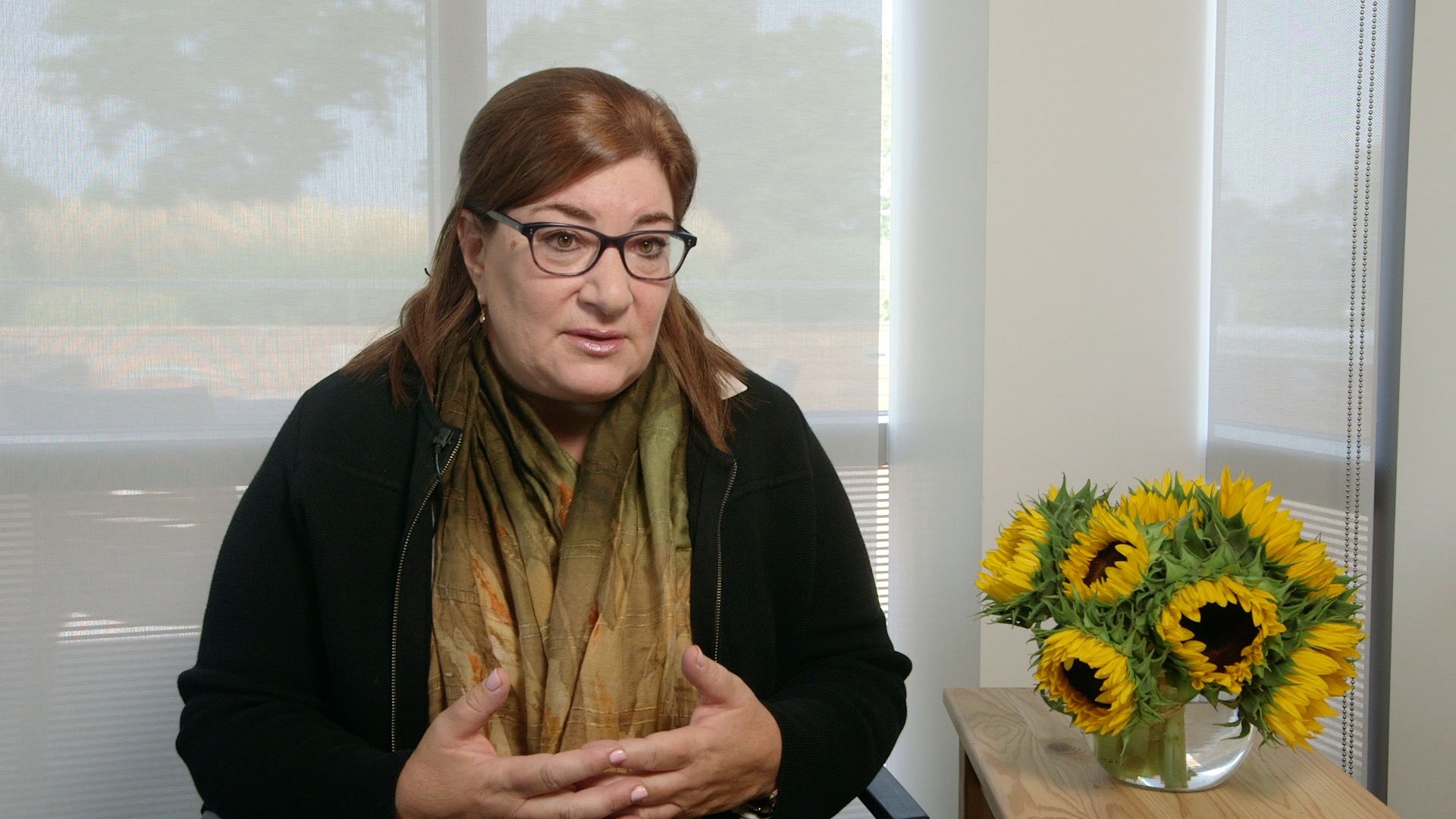Dr. Cohn provides the background behind her monologue, “The Patient in 9-Window”. She tells us about the different responses from students as they’ve watched her perform this monologue in Nursing Fundamentals. And she tells us about other innovative ways she engages with her students throughout their time in her class.
This full video is only available to our members but please enjoy our preview below.
Video Library
Our comprehensive Educating Nurses video library is available to subscribers only. To become a subscriber click the button below.
Join now for full accessOur thanks to Adelphi University in Garden City, NY, for allowing us to shoot this video and interview on site.
COMPANION ARTICLE COMPANION VIDEO 1 COMPANION VIDEO 2

I love this and agree wholeheartedly! We seem to be more focused on the trees instead of looking at the forest. What can we do at this time in our profession as a new nurse/student nurse? Sometimes it seems like patient education, and listening to the patient is put on the back burner for a later time when in all actuality this should start at the beginning. Yes, the other items are important too, but if we do not listen to our patient we may miss opportunities to implement proper care at the right time. Listening to our patient is one of the most basic and important tasks that we can perform. Through listening we learn what education is needed, what is known, what is therapeutic, what doesn’t work, how the patient feels about their current situation, do they need counseling, what other tests may need to be brought to the primary care’s attention, and so forth and so on…. It’s called Patient-Centered-Care through therapeutic communication…
Thank you for sharing this information.
Bobbi
Go Liz! This is a fantastic representation of a patient – I witnessed this firsthand while my mother was in the hospital. A very sincere nurse knelt on the floor in front of my mom and said, “Rosanne, you are in afib with rpr, we need you to call us if you have to go to the bathroom. No getting out of bed without help.” My mom nodded her head, turned to me and asked me if they would come when she needed to go to the bathroom. I was still trying to figure out what ‘rpr’ was!
When I teach students in pediatric clinicals, I tell them that even if they don’t like pediatrics, I guarantee they will learn tools that will help them in any field of nursing. That explaining things in layman’s terms and honestly listening to their patients will make them better nurses. At the end of the quarter, they all feel more comfortable and confident simply having a conversation with patients.